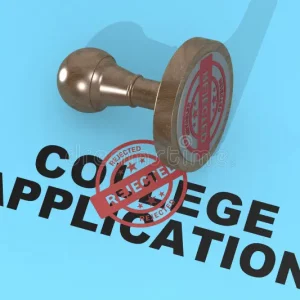If I were President Obama, I might be asking myself, “How did I get here?”
“What happened to those chanting masses? Where are all those t-shirts? What about the bumper stickers, the signs, the Nobel Peace Prizes? This is not my vision. This is not my changed world. Things are the same as they ever were.”
How did this highly anticipated presidential performance turn into such a flop?
There is a stark contrast between the vibrant harbinger of change we first met in 2004 and this tired President Obama of 2014. There are likely several factors that have contributed to what has largely been regarded a disappointing performance. But there is one in particular that deserves more attention: a deficiency in charisma. The visible decrease in performed charisma has severely undermined President Obama’s support and popularity. This deficiency in being able to express presidential charisma has resulted in diminished authority and capacity to pursue political agendas.
In response to criticisms that he decided to play golf after giving a seemingly heartfelt speech about James Foley’s beheading, President Obama stated that part of the president’s job is “the theater of it,” a part he admitted as “not always something that comes naturally ” to him. He then asked the American people to look at whether or not he was “getting the policies right… protecting the American people” and doing what’s “necessary.”
While enacting policy, defending the nation and doing what is “necessary” are three fundamental duties for a President of the United States, perhaps most necessary is for the President to act the role. The theatrics demanded from a president mean that a presidential vacation is hardly ever just that. In 1902, Theodore Roosevelt set the precedent for “working” presidential vacations. Like all other presidents after him, Roosevelt had legions of staffers and members of the press accompany him on his trip to Oyster Bay, N.Y., so that he could at least give the appearance that he was still working and being productive.
Needing to appear a certain way even while on vacation exemplifies the highly theatrical role of a United States president. Obama – as United States President – has the leading role in this global political theater. There have been many actors before Barack Obama who have taken up the role. Each individual performed with a different interpretation of the part. Some have been more successful in their performance than others, but the essence of the presidential character over time has remained the same. Though Obama wants to be judged by his policies, he must continuously play his role as charismatic leader in order to be effective.
Sociologist and philosopher Max Weber has a theory on the sources of authority that may be useful in diagnosing Obama’s current situation. Weber lists three sources of legitimacy: legal authority, traditional authority, and, of course, charismatic authority. We can view the first two as granted in the presidency. The legal authority of the President of the United States is codified in the Constitution, while traditional authority has been steadily built upon 200 years of precedent.
What seems to fluctuate from president to president is the level of charismatic authority each is able to perform. Some of the presidents who’ve enjoyed popularity during and after their terms in office are also those who are considered to be the most charismatic. For more recent examples of popular and charismatic presidents, I think of President Reagan (an actual actor), or even President Clinton, both of whom can provide points of comparison for President Obama.
Like Obama, both Reagan and Clinton faced stiff opposition and criticism during their respective terms. Throughout his presidency, Reagan had to deal with an unfriendly Democratic majority in the House. He was criticized during his two terms for pushing divisive “Reaganomics” policies involving tax-reform, welfare programs, and increased military spending. Reagan also came under heavy scrutiny during the Iran-Contra Scandal.
Clinton had the difficult task of dealing with not only a Republican controlled House, but a Republican Senate as well. In 1993, long before Obamacare, Clinton tried to pass universal healthcare legislation known as the Health Security Act, but it was an effort that failed only a year later. Clinton even faced impeachment during the Monica Lewinsky Scandal, an event which became a defining moment of his presidency.
In addition, both Reagan and Clinton were criticized for their lack of foreign policy experience and conflicts overseas. Yet even during their presidencies, Reagan and Clinton enjoyed relatively high approval ratings and they are still widely considered two of our nation’s better presidents. Reagan and Clinton’s past and present popularity is due in large part to their ability to perform the presidential role well. Reagan and Clinton were both skilled in dealing with the theatrical parts of the presidency. Through charismatic speech, composure, and action, Reagan and Clinton were able to sufficiently convince their co-stars, audience, and their critics, and were thus able to enjoy greater degrees of success in pursuing their agendas and enacting policy.
A strong correlation can be shown between a particular president’s “success” (as measured by approval ratings and policy enactment) and his ability to charismatically perform the presidential role. Reagan and Clinton are two more recent examples of this correlation, however this charisma-success relationship can also be observed since the advent of mass media with the successes of Theodore Roosevelt. On the other end of the spectrum, “unsuccessful” presidents (such as George W. Bush or Jimmy Carter) are those who were largely unconvincing and uninspiring in their performances. These theatrically unsuccessful presidents enjoyed little popularity and were often unable to fully achieve their political agendas.
So how does Obama measure up? Gallup polls now typically place Obama at a paltry approval rating of around 40%, but with two years left in his presidency there is still hope that these ratings may go up. There are indeed numerous external factors that have contributed to Obama’s current unpopularity and ineffectiveness, but these factors are not entirely unique to his presidency. Rather than blaming an uncooperative Congress, a flailing global economy, or explosive political movements and conflicts around the world, we should focus on the theatrical performance of the president himself. Previous presidents such as Reagan and Clinton have shown how important a good performance is in maintaining popularity, enacting policies and building positive presidential legacies, even while being in similar circumstances Obama currently finds himself in. Presidential popularity, policy, and legacy are dependent on the authority derived from consistent demonstrations of charisma.
If I were President Obama, I might be looking out the window of Air Force One, reflecting on the “theatrics” and “optics” of the presidential role. I’d think back on those early years of hope and change, and I’d be asking myself: “How did I get here?” Quietly, I’d answer: “Charisma.”
![Theatrics of Presidency [Jordan][picture]](https://bpr.studentorg.berkeley.edu/wp-content/uploads/2014/10/Theatrics-of-Presidency-Jordanpicture-289x300.jpg)





Be First to Comment